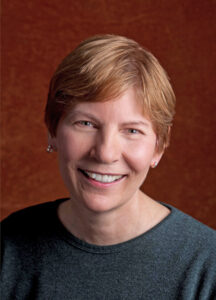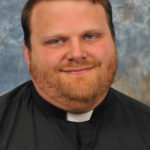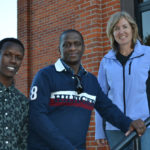By Kathy Berken
I attended an open forum about the Mass recently. The facilitator asked us to consider two questions: “What is God doing in the eucharistic liturgy?” And, “What are the people doing in the eucharistic liturgy?”

We brainstormed ideas and she wrote them on the whiteboard. I was surprised at the results, not because they covered just about every aspect of the liturgy but because this is a group of people I can only describe as post-Vatican II progressive Catholics, and the responses seemed fairly traditional to me. I was intrigued.
Listening to each person’s comments and their passion for the liturgy, I was even more confident that we who have memories of guitar Masses and “relevant” homilies during the late ‘60s and ‘70s, still want our eucharistic liturgies to have deep spiritual significance.
These 50 or so gray-haired adults gather monthly to discuss ways in which they can instill the same enthusiasm in their parishes that they have always had from the moment they experienced Pope John XXIII throwing open the church windows and letting in a breath of fresh air with the Second Vatican Council.
We know that change was on the council’s agenda, especially in the area of the liturgy, but arguments for tradition were also evident. We essentially kept the order of the Mass but made alterations that gave us more participation, connection and understanding of our liturgical experience. The use of the vernacular helped make the prayers comprehensible. Modern music helped connect our worship time to our secular life. Turning the altar around and focusing more on the sacrament as a meal and a celebration helped change our attitudes about the Last Supper and Jesus’ words to “Do this to remember Me.”
What struck me profoundly at our meeting was the argument that one woman raised for changing the Mass again, including the readings and the eucharistic prayers, in order to experience something new. In response, one man paused and said, “If you want to find the transcendent God, you will come to know that we are different each time we encounter the eucharistic liturgy. Because we are not the same persons, moment to moment, our experience of the Mass will be profoundly different each time as well.”
He went on to explain how he hears the same readings in the three annual cycles differently each time. The words and the stories appear unique because he is changing and growing. The flesh he applies to rituals, music and prayers is as distinct as his own life and so, ironically, the consistency that the woman questioned is necessary to encounter the sameness from an entirely different perspective, with new eyes.
I felt that same way years ago at a Sunday Mass, watching people streaming up to receive Communion, listening to the words, “The body of Christ,” repeated over and over, as a sort of mantra. I suddenly had a “eureka” moment! “WE are the body of Christ!” The movement of the people walking forward, one at a time but all together, the priest saying the “The body of Christ,” placing the host in their hands, hearing the same “Amen,” gave me the image of a flowing and very alive river. One body was moving in the same direction. It was beautiful!
We are the body of Christ, the whole lot of us, one in our faith, one in our actions, not only represented by this ritual, but as a concrete reality of unity. We are one body. At the moment we receive Eucharist we are no longer individuals, but we become the entirety of the sacrament that begins with our intention to attend Mass and remains with us as we return to our secular lives. This makes us one universal body of Christ. This is holy. This is communion. This is Jesus in the flesh as he rose from the dead and sent his Spirit to be with us forever.
(Kathy Berken has a master’s degree in theology from St. Catherine University, St. Paul, Minn. She lived and worked at The Arche, L’Arche in Clinton 1999-2009 and is author of “Walking on a Rolling Deck: Life on the Ark (stories from The Arch).”)











